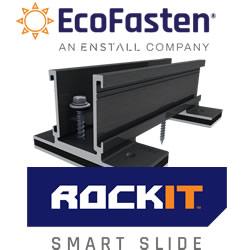Parker Hannifin Establishes New Energy Grid Tie Division
Resources focused on the global energy market
CHARLOTTE NC, February 11, 2013 - The Automation Group of Parker Hannifin Corporation (NYSE: PH), the global leader in motion and control technologies, announced the formation of its new Energy Grid Tie Division. This division is located in Charlotte, NC, and will work with the company's SSD Drives Division, which was the initial source of much of its technology.
The creation of the Energy Grid Tie Division will permit the SSD Drives Division to remain focused on industrial automation and mobile drives markets, whereas the new division is dedicating its resources to the global energy market.
The new Energy Grid Tie Division is focusing its operational and global growth strategies on utility scale power conversion and energy storage products and technology. Its products are used to support the rapidly expanding renewable energy market and the associated energy storage requirements needed to integrate renewable sources and to improve utility grid stability and quality. Jim Hoelscher will lead the new division as General Manager. For more information on the new division, please visit www.parker.com/egt
With annual sales exceeding $13 billion in fiscal year 2012, Parker Hannifin is the world's leading diversified manufacturer of motion and control technologies and systems, providing precision-engineered solutions for a wide variety of mobile, industrial and aerospace markets. The company employs approximately 60,000 people in 48 countries around the world. Parker has increased its annual dividends paid to shareholders for 56 consecutive fiscal years, among the top five longest-running dividend-increase records in the S&P 500 index. For more information, visit the company's website at www.parker.com, or its investor information website at www.phstock.com.
Featured Product

Introducing RockIt Smart Slide
Introducing RockIt Smart Slide - the ultimate solution for fast and easy installation of the rail-less RockIt racking system on composition shingle roofs. Smart Slide conforms to UL 441 and TAS 100 (A)-95 for wind and wind-driven rain, providing a super-strong watertight seal that is achieved through compression, in most cases without the need for additional sealant. The waterproofing sealant is embedded deep into the granules of the shingle, thanks to the integrated flexible foam layer that provides cushioning. This ensures a secure fit that conforms to any architectural-style shingle. With UltraGrip Technology™, you can rely on a secure installation, as it absorbs the movement created by thermal expansion and contraction. The pre-installed sealing pads are compatible with all composition shingle roofs, making it the ideal choice, even in ambient temperatures as low as 5 degrees.
